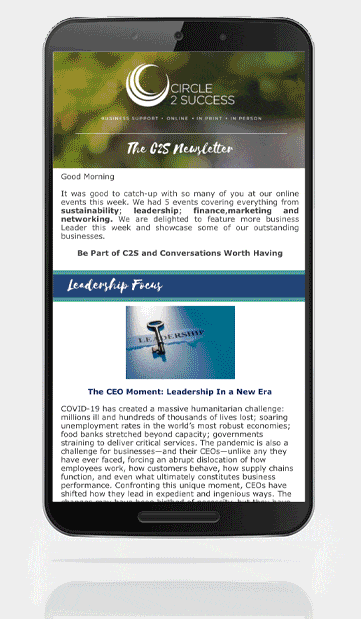Recruitment tends to be an ongoing challenge for employers and it’s a topic we’ve returned to several times over the years. Most businesses will factor recruitment into their general operations. Either they’ll need additional staff as they grow and expand, and/or they need to replace other employees who have moved on for any variety of reasons.
It’s no secret however that Covid and Brexit have combined to create a perfect storm that has transformed the recruitment landscape. This has come on the back of a gradual shift in what we might describe as traditional recruitment to a more digitalised process, thanks to the proliferation of the Internet.
The tables have turned on recruitment agencies who once might have retained a bank of job-seeking candidates, and have now-become head hunters who scour scores of CVs posted to specialist websites in search of suitable candidates as vacancies arise. Job-hunting is dominated by websites such as Reed and Indeed who have streamlined the process to an almost box-ticking exercise that often inundates and frustrates businesses with unsuitable applicants.
Today, businesses openly admit to finding it a struggle to fill vacancies. With record levels of employment in the UK, candidates can afford to be fussy about where they want to work. The balance of power has shifted in the employees’ favour and talent acquisition has become highly competitive with businesses creaking under the demands for favourable terms and benefits requested by candidates. Flexible working arrangements are becoming increasingly prolific and “golden hellos” a regularity.
Whilst a competitive salary, health care and generous pension provision will certainly encourage enquiries, there is something indefinable about working for a company that has a reputation for being a “good employer”. This is your employer “brand” and it’s as important that this is as strong, if not stronger, than the brand you work to project to your customers.
Start building your employer brand from within with your existing employees. Introduce clear and professional business policies and ethics consistently across your workforce to develop an enviable culture. Invest in your employees. A properly considered succession plan will mean that skills are available internally to meet growth plans and staff attrition will lessen as employees see their future development mapped out for them.
Building such a reputation doesn’t happen overnight however. Whilst it may not help in the current vacancies crisis, it should feature in a longer term strategy to ensure that the vacancies of the future can be filled. Social media and websites such as glassdoor.co.uk are waiting to pounce on any employers who don’t meet employee expectations.
Some responsibility for a lack of appropriate talent and skills must be accepted by the industries and businesses themselves for their failure to plan their workforce needs. Brexit may have influenced an exodus of cheap labour but let’s be honest and remember that the Brexit vote was over five years ago in 2016; it’s not like we didn’t have time to prepare.
Equally, how many businesses actively talk to local schools, colleges and Universities about the skills they need both now and for as far in the future as they are able to predict? Garnering engagement and influencing the subjects that are taught at the earliest possible stage must surely be a logical step when trying to develop a pool of talent that’s both on the doorstep, and readily equipped with the right skills.
A recent survey by Thomas International revealed that as many as 50% of new candidates aren’t working out. That’s an excessive failure rate and one that could potentially prove fatal for some businesses. It might be easy to blame the candidates for over-egging their own skills and abilities but we should also address our own recruitment and attraction techniques. Here are some pointers:
- Be realistic: Are you looking for a candidate who has oceans of experience, can hit the ground running, won’t require any training and will be the perfect cultural fit? So is everyone else and they probably don’t exist.
- Build a clear job role: Think of the job that’s needs fulfilling now and the skills required now. Can skills required for the future be trained later so that your current available talent pool is larger?
- Use plain language: Don’t advertise for a “Vision Technician” when you’re actually after a Window Cleaner. Think about what your potential and preferred candidates will actually search for.
- Sell your business and the role: Why is your job so good and why should people work for you as opposed to a competitor.
- Declare your universal appeal: Let candidates know that you’re an equal opportunities employer and advertise to more diverse markets and communities to extend your reach.
- Include your sustainable credentials: Having green and environmental policies is important to a great many candidates.
- Consider transferable skills: Experience in some other fields or industries can cross-over much more readily than you might have realised. Think outside the box.
- Use application forms: CVs are good for some roles but they can be off-putting when candidates are unsure about how to lay them out. Application forms also means everybody is asked the same information.
- Cautiously use social media: For some jobs it’s perfect but for others less so. Be selective and use wisely.
In the current labour market a rounded and creative recruitment strategy is vital if vacancies are going to be filled and productivity maintained. Attraction, recruitment and retention will be key themes with our forthcoming one-day seminar on Tuesday 18th January at Worcester Warriors Rugby club.
We’ll be providing information from ourselves and range of key, guest speakers to support businesses in fulfilling their recruitment needs. Book your place now. Cost is £40 pp with any profits being donated to charity.
For further help, support or advice or to discuss training, call us on 01452 331331 or drop us an e-mail to advice@hrchampions.co.uk







